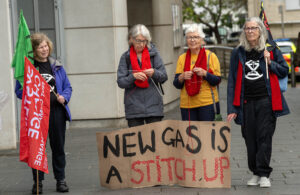A new carbon budget could provide a clearer view of climate deadlines
Researchers at the University of Concordia have created a new carbon budget that provides a clear view of our ability to stay within the Paris Agreement target.
In order to understand the likelihood of global temperatures staying within a 1.5°C increase, governments and scientists often look at the remaining carbon budget.
However, estimates are extremely varied, making it extremely difficult to get an accurate picture.
Because of this, the researchers have created a new and clearer carbon budget which provides an accurate estimate of the CO2 that can be emitted.
This estimate suggests that between 230 and 440 billion more tonnes of CO2 can be emitted into the atmosphere and still provide a reasonable chance of limiting global warming to 1.5°C.
These numbers are based on accounting for geophysical uncertainties, but not socioeconomic ones.
The researchers have highlighted that the decisions humans make in the near-term are extremely important and have the potential to either increase or decrease the size of the remaining carbon budget. In the new framework, these decisions could add (or remove) as much as 170 billion tonnes of CO2 to the median carbon budget estimate.
The Covid-19 pandemic has presented humans with a unique opportunity to change our current trajectory and according to the researchers if we are able to direct recovery investments in ways that would continue this decrease (rather than allowing emissions to rebound) we would greatly increase our chances of remaining under the 1.5°C Paris Agreement target.
Damon Matthews, the Concordia Research Chair in Climate Science and Sustainability, said: ‘The wide range of carbon budget estimates in the literature has contributed to both confusion and inaction in climate policy circles.
‘This is the first time we have gone through all the uncertainties and included them in a single estimate.
‘I am optimistic that having national leadership in the US that can mobilize efforts on climate change will make a big difference over the coming years.
‘The momentum is shifting in the right direction, but it is still not happening fast enough.’
Photo Credit – Pixabay















